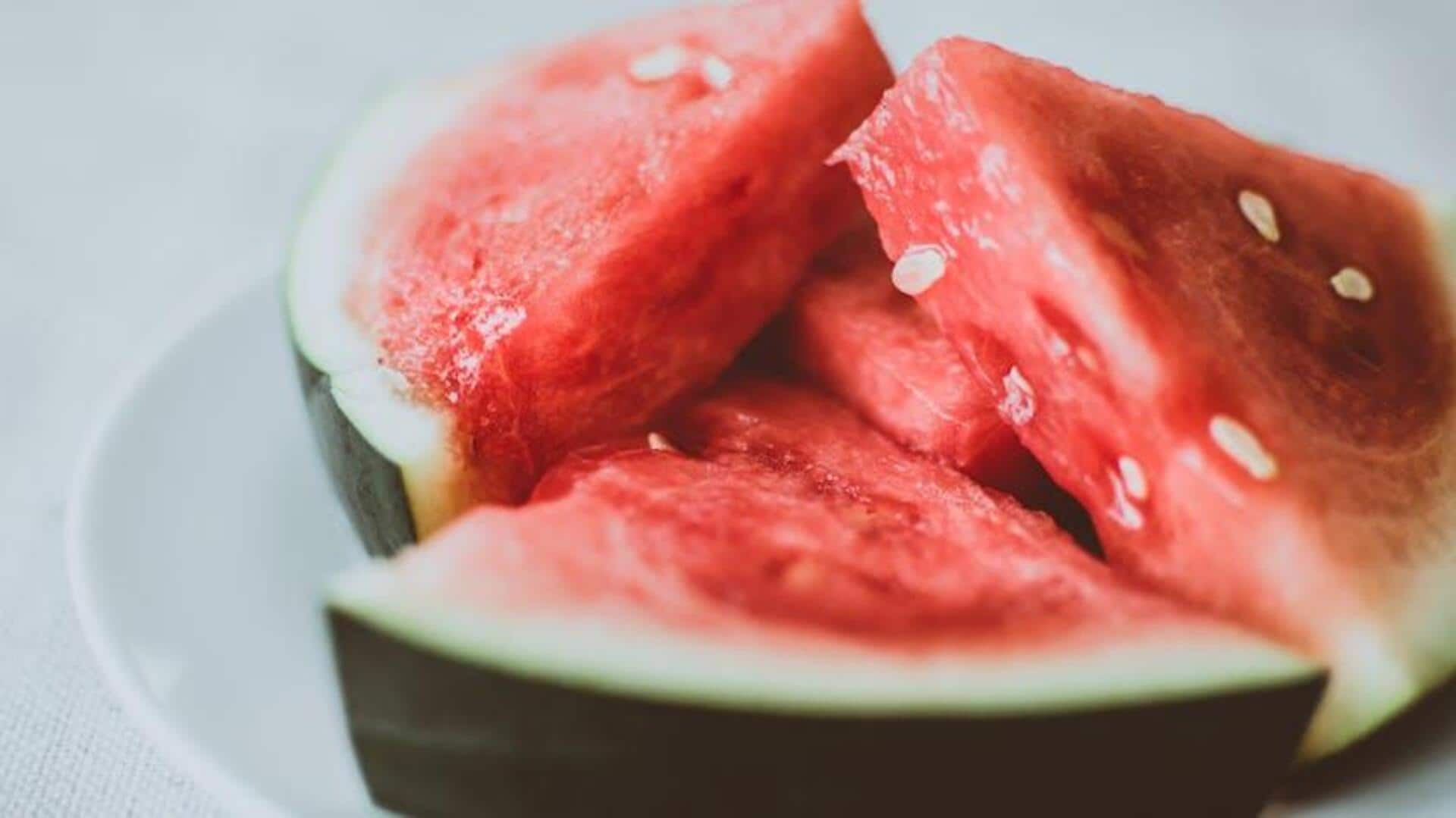
The refreshing superfood benefits of African watermelon
What's the story
Watermelons, native to Africa, are more than just a refreshing summer fruit - they're a nutrient-packed superfood! This article explores the health benefits and cultural importance of African watermelon, solidifying its superfood status. From hydration to packed with nutrients, discover why this fruit holds a special place in many communities across the continent.
Hydration
A hydration powerhouse
The African watermelon is composed of 92% water, making it an excellent source of hydration. In many African communities where access to clean drinking water can be limited, consuming watermelon serves as a vital means of staying hydrated. This high water content also makes it an ideal snack for hot climates, helping to prevent heat stroke and dehydration.
Nutrients
Rich in nutritious compounds
Apart from being super hydrating, African watermelon is a powerhouse of essential vitamins and minerals. It boasts high concentrations of vitamin C, vitamin A, magnesium, and potassium. These nutrients are key for promoting radiant skin, bolstering the immune system, and facilitating optimal muscle function. Plus, the abundance of antioxidants like lycopene aids in combating oxidative stress and potentially reduces the risk of certain illnesses.
Heart health
Supports heart health
The nutrient-rich profile of African watermelon contributes to heart health in multiple ways. Potassium aids in regulating blood pressure levels by counteracting the effects of sodium in the body. Additionally, lycopene has been associated with a decrease in risk factors for cardiovascular diseases by enhancing lipid profiles and reducing blood pressure. Incorporating it into your regular diet can contribute to a heart-healthy lifestyle.
Digestion
Aids digestive health
Fiber is essential for digestive health as it helps regulate bowel movements and prevent constipation. While African watermelon does not boast a high fiber content compared to some other fruits and vegetables, regular consumption can still contribute to your overall dietary fiber intake. Plus, its high water content supports digestion by facilitating the smooth passage of food through the digestive tract.
Culture
Cultural significance and uses
Across Africa, watermelon isn't just a delicious food item, it holds cultural significance and historical importance. It's offered to guests during ceremonies and celebrations as a token of hospitality and kindness. People also utilize the seeds, either by drying and roasting them for a nutritious snack or grinding them into flour for baking bread. This combination of versatility and cultural importance cements watermelon's place as a staple in African diets.